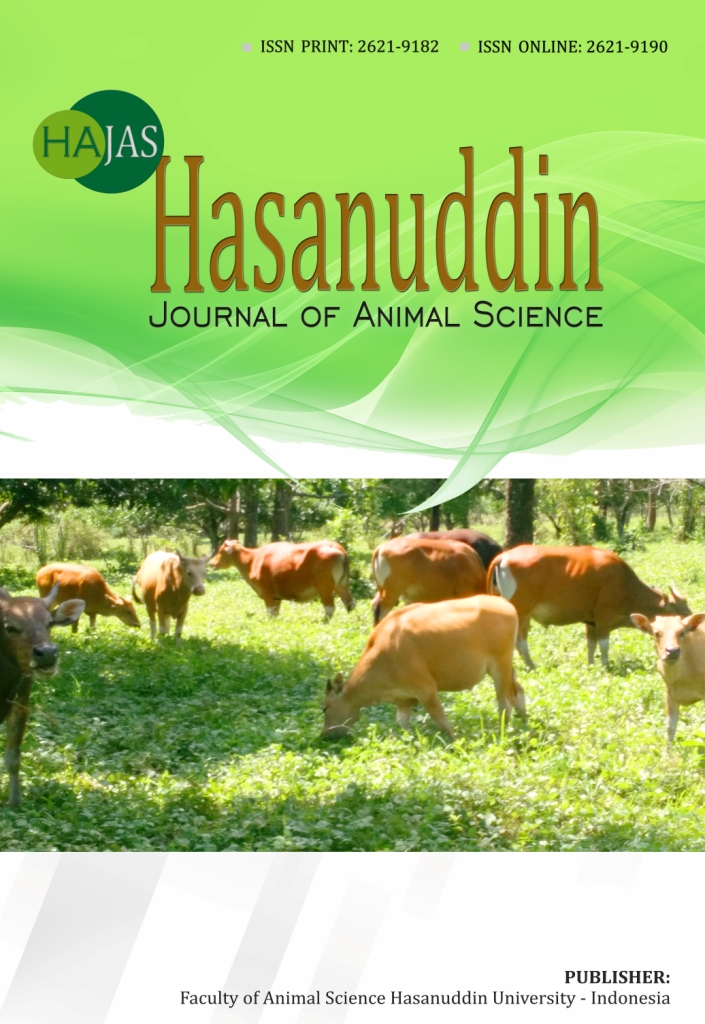Yoghurt Syneresis with Addition of Agar as Stabilizer
DOI:
https://doi.org/10.20956/hajas.viNo%201.12363Abstract
Yogurt quality is greatly influenced by many factors, including incubation time, incubation temperature, or addition of stabilizer. Agar is a type of hydrocolloid which can be used as a stabilizer ingredient in food product, because can function as thickening agent. Syneresis is one indicator of measuring yogurt quality. In this study, a starter Lactobacillus bulgaricus was used which was obtained from isolated cultures from commercial yogurt. During the study, the culture was routinely propagated in 10% reconstituted skimmed milk (RSM). The experiment design used was a completely randomized design, with an agar concentration as dependent factor of 0%; 0.1%; 0.2%; 0.3%; 0.4% and 0.5%. The variable measured was syneresis (%) using the drainage method. Each treatment was repeated 5 times. Based on variance analysis, indicated that agar addition with a concentration of 0 - 0.5% has a very significant effect on yoghurt syneresis. The syneresis decreased along with the increase in agar levels with the lowest syneresis value in the addition of 0.5% agar with an average value of 10%. From this study it can be concluded that the addition of 0.5% agar level reduces the syneresis (value of 10% syneresis), although this syneresis is still quite high, where in the manufacture of yogurt there should be no syneresis (0% syneresis)
Downloads
Published
Issue
Section
License

This work is licensed under a Creative Commons Attribution-NonCommercial 4.0 International License.











